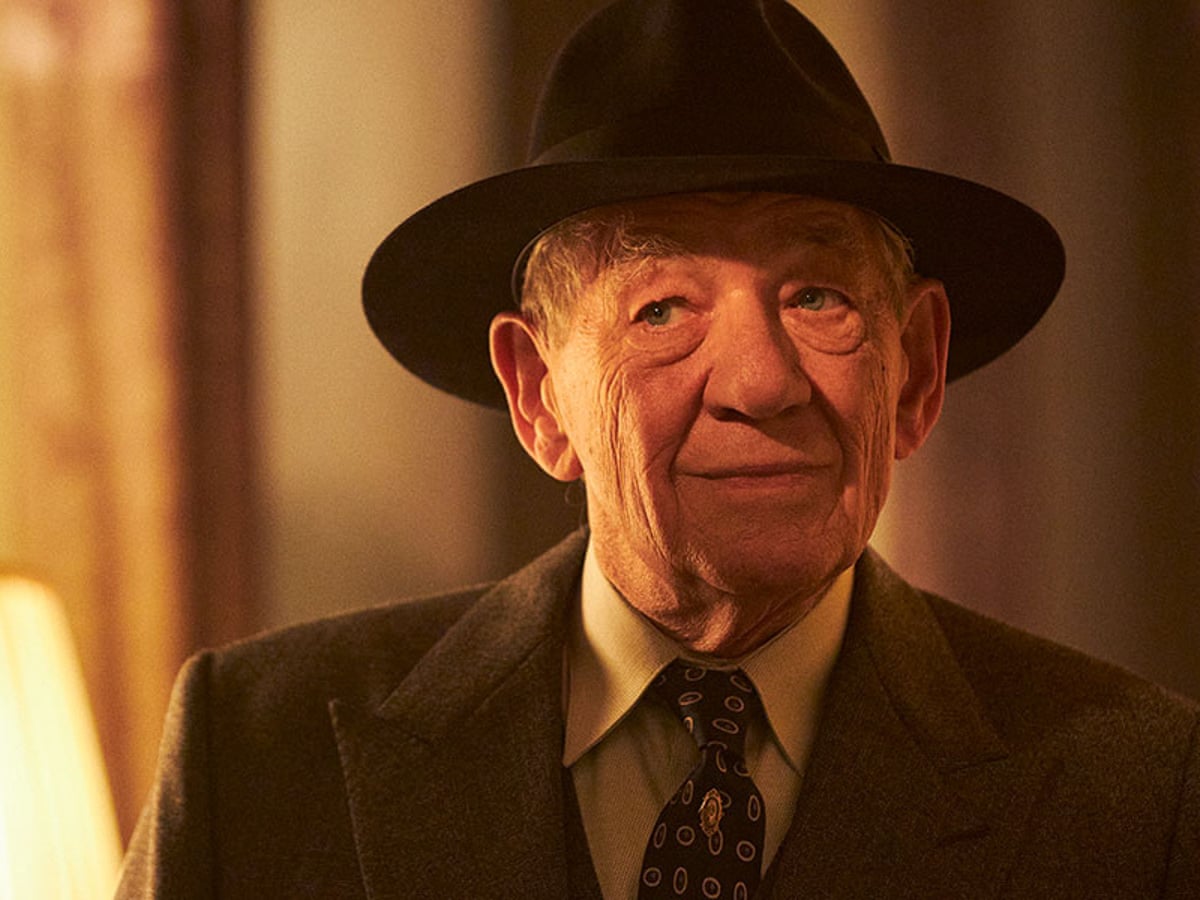Director: Anand Tucker
Writers: Patrick Marber, Anthony Quinn
Stars: Lesley Manville, Mark Strong, Gemma Arterton
Synopsis: A powerful London theater critic becomes entangled in a web of deceit and murder.
The Critic is a misguided melodrama anchored by a devilish performance from Ian McKellen. Based on the 2015 novel Curtain Call by Anthony Quinn, it tells a nefarious story following an actress and a critic in an unlikely pairing surrounding deceit, murder, and ambition. Despite reshoots and a re-edit after its TIFF premiere in 2023, director Anand Tucker struggles to maintain a consistent tone—wavering between pulpy melodrama and trite period thriller. For a movie about a man who delights in making his living off critiquing with a poisoned pen, it is a shame that Jimmy Erskin’s ( McKellen) story does not amount to something deserving of positive appraisal.

Set in London in 1934, the film follows the titular Erskin as a theatre critic who writes for a ‘family-friendly’ tabloid newspaper, ‘The Daily Chronicle’. His words are his weapons, firing constantly toward the actors and producers he feels have wronged him. His secretary and lover, Tom (Alfred Enoch), is his shadow, continually typing up whatever vitriol and puffed-up theatrics Erskin believes will help entertain the readers. Jimmy’s vile antics are managed by Viscount David Brooke (Mark Strong), a reclusive but frank man who has taken over the company after the recent death of his father. Brooke’s father was fond of Jimmy, but David has a different and more pragmatic vision for the paper’s future.
Meanwhile, struggling actress Nina Land (Gemma Arterton) is landing many leading roles in the theatre world but never escaping the ire of Erskin’s brutal words. Her mother, Annabel (a criminally underused Lesley Manville), promotes Nina’s success to no avail. One of the funniest moments in the film features Annabel attempting to change Erskin’s mind but instead riling him up so much she is kicked out of the lounge. Also thrown into the mix is Brooke’s son-in-law and wayward artist, Stephen Wyley (Ben Barnes) and his wife Cora (Romola Garai), whose strained relationship is tested as Stephen engages in an affair with Nina.
During a time when the British Union of Fascists are proudly walking the street, Jimmy and Tom are constantly under the threat of imprisonment and death. Police continually raid hot spots where queer people congregate. Homosexuality is a serious crime. Jimmy’s career is attacked when Brooke threatens him with dismissal if he does not tone down his nocturnal activities and lessen the cruelty of his writing style. Scheming his way to survive, Erskin enters a Faustian bargain between Nina, Brooke, himself, and Stephen. A melodramatic imbroglio ensues featuring blackmail, death, sex. and greed.
During a recent interview with Sir Ian, he said the film is “on the whole simply mild entertainment reminiscent of 1930’s melodramas.” Therein lies the problem with The Critic, a film that starts as a grounded look into a detestable man but ultimately ventures into exaggerations and winding plot escalations – ones that undercut any serious exploration of what makes Jimmy Erskin so curdled.

Written by English comedian and playwright Patrick Marber, the script is often witty and entertaining but struggles to unpack its political undercurrents with its theatrical overtones. Tom is Black and gay but only briefly mentions his struggle working for conservative news. Nowhere to be found is the internalized homophobia that could have been an essential part of Jimmy’s persona. The character is hateful and foul, but the film can’t decide if it wants you to laugh at his villainousness or cry for the man he must hide.
Instead, McKellen plays the character like a villain in a pantomime—exuding campy bravado but providing nothing under the surface. This shortcoming hurts the narrative; one sequence in the film has Jimmy and Tom arrested for being queer in public, but the film immediately moves on to other soapy subplots without any natural consequence. Any thematic exploration of queerness is sacrificed for the film’s histrionics, particularly in the more ludicrous second half.
Gemma Arterton is also good in the role, but Nina’s motivations go where the plot wants her to, not toward where the character would innately gravitate. She seeks fame, success, and love but is deeply aware of her faults. Her self-awareness and anxieties are initially interesting but quickly put aside when she becomes a pawn in Jimmy’s grand plan.
Jimmy and Nina believe they can provide each other with what they desire; Erskin with his stable vocation and Land with her public approval, but manipulation, lies, and seduction take over whatever initial sincerity Nina intends. Arterton and McKellen have compelling chemistry, but it’s insufficient to make the film and the characters feel less uneven.
The film’s setting, costumes, and craft admirably situate the viewer in the high society of 1930s London, full of lavish rooms, chandelier lights, and aristocratic splendor. It is a time before the mass proliferation of media, where critics’ words can make or break a creative in the industry. Jimmy Erskin relishes the power his opinions can have over others, often forgetting the art he is meant to be servicing. There is a noteworthy moral about investigating the pomposity of art critics, but it is ironically lacking within the plot of The Critic.
Sir Ian McKellen has fun with the role, but The Critic fails to succeed as a melodrama or a thriller. It is occasionally funny and mildly entertaining but ultimately becomes another Sunday matinee period drama – one that audiences forget soon after the drive home. Jimmy Erskin relishes his craft of being scathing, so all The Critic deserves is a feeling of mild disappointment rather than vitriolic hatred.





